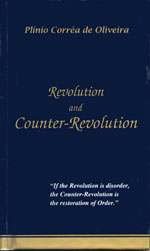 |
Socio-Political Issues
Thoughts on Structuralism
Lyle J. Arnold, Jr.
Structuralism was the direct offshoot of Existentialism (which rejects objectivity), a French movement that peaked in the Sixties. It was not a philosophy. Rather it was a convoluted theory that believed it was wrong to examine the essence of something; instead, it believed that only through the structure of relationships could a given subject be understood.

Strauss conceived his theory in the Amazon among Indians, ‘unhampered by the structures of civilization’ below
 |
Its "high priest" was Claude Levi-Strauss, and one of his most expressive stars was the homosexual Michel Foucault, the French philosopher and ‘social scientist’ who died of AIDS in 1984. Both Strauss and Foucault rejected the view that knowledge of the universe was based on the observation of the external world. They held that man was essentially a thinking animal who lived in a world that was intelligible to him only because he imposed his own structure upon his experiences. (1)
One could call this belief a quintessential subjectivism. Despite its aversion for definitions, Structuralism makes the absurd claim that it has "a method, a way of analyzing" where everything in existence - including all art forms, linguistics, anthropology, history, sociology, psychology and politics - can be understood by a structure of signs. In short, structuralism presented itself as a kind of magical elixir, a kind of Gnostic dogma. (2)
And although its adherents do not believe in objectivity, their ‘science’ has had extensive influence on today's culture, even penetrating into the life of the Catholic Church, where a mixture of Structuralism and Progressivism has polluted the Church beyond recognition.
I believe it unnecessary to examine here the a-b-c's of Structuralism, because the more one delves into its subject matter, the deeper he gets into the muck of a chaotic pantheism. But structuralists claim that their theory leads to the truth. Its credo includes this muddled pantheistic assertion, "We do not claim to show how men think in myths, but how myths think themselves in men, and without their knowledge.... Myths think themselves among themselves." (3)
Prof. Plinio Correa de Oliveira made a brilliant analysis on Structuralism’s influence on the world. He set aside all of the alleged disciplines that Structuralism purports to influence and focused on the single most destructive one, that of human individuality and civilization.

Purchase Revolution and Counter-Revolution here
|
As Prof. Plinio demonstrated in his book Revolution and Counter-Revolution, the Revolution takes advantage of the disorderly tendencies in man, especially his inclinations toward pride and sensuality.(4) It was pride and sensuality that moved man to reject hierarchy and embrace equality. That engine drove the three revolutions of Protestantism, the French Revolution and Communism, all of which coalesced into the Revolution. He demonstrates how this ravenous hunger and thirst for equality caused each of these revolutions.
The proud person hates authority; hence his Protestant revolt against the Papacy and the authentic interpretation of Holy Scripture. The next phase took place two centuries later with a revolt against the authority of the King and the aristocracy. The French Revolution raised the revolutionary banner of Liberty, Equality and Fraternity to squash the monarchy and what remained of the medieval civil order.
It was followed more than a century later with the Communist revolt of 1917, where hatred for authority, coupled with egalitarian hatred against those who have more wealth, spawned the abolition of private property and the elusive ‘dictatorship of the proletariat.’ With remarkable prescience, Dr. Plinio foresaw the next revolution, the Fourth Revolution whose propelling energies come from Structuralism.
Central to the structuralist vision is a State where individual thought coalesces into a collective or "savage thought." It is "thought that does not think," habitual to tribalism.
In temporal society, we see an ever-growing trend toward it in the tribalist manner of dressing that borders on nudity. This was predicted by Prof. Plinio, who warned that if the tolerance for fleshy dress continues, we would see "at the most, a cincture of feathers, such as worn by certain tribes" in the civilized world. (5)

An unnamed passenger in "drag" is allowed to fly |
To demonstrate how far tolerance has gone in temporal society, the reader need only view a passenger on a US Airlines flight from Fort Lauderdale to Phoenix on June 9, 2011. A man dressed in a woman’s bikini and white sheer shrug, a kind of strip-tease attire, boarded the plane with the due permission of the airline, despite complaints from other customers. (6)
Did not something similar happen in the Vatican when, on December 15, 2010, we observed Pope Ratzinger allowing a group of acrobats to execute a sort a striptease preceding a gymnastic demonstration? Was this not the Conciliar Church opening its arms to embrace the Fourth Revolution, Tribalism and Structuralism?
1. Jeremy Harwood, Philosophy, London:, Quercus, 2010, p. 178.
2. Judy Jones & William Wilson, An Incomplete Education, NY: Ballantine Bks, 1987, p. 331.
3. "Jabberwocky," Lewis Carroll, from Through the Looking Glass and What Alice Found There, 1872.
4. Plinio Correa de Oliveira, Revolution & Counter-Revolution, New Rochelle, NY: The Foundation for Christian Civilization 1980), Part One, Chapter V, VI. VII.
5. Ibid, Part Three, Ch. III, pp. 162-169.
6. Contra Costa Times, “Dress Code up in the air for airline’s passengers,” June 23, 2011, page AA1.

Posted July 11, 2011

Related Topics of Interest
 Verbal Acrobatics at the Vatican Verbal Acrobatics at the Vatican
 Tribal Customs at San Juan Capistrano Mass Tribal Customs at San Juan Capistrano Mass
 The Religious Tribalism of Evo Morales The Religious Tribalism of Evo Morales
 Benedict XVI Blessed by a Tribal Witch Doctor Benedict XVI Blessed by a Tribal Witch Doctor
 Papal Mass in Papua New Guinea Papal Mass in Papua New Guinea
 Another Papua New Guinea Mass Another Papua New Guinea Mass
 ‘I Always Voted at My Parties' Call’ ‘I Always Voted at My Parties' Call’
 Declaration of Resistance to the Vatican Ostpolitik Declaration of Resistance to the Vatican Ostpolitik
 Revolution and Counter-Revolution – Overview Revolution and Counter-Revolution – Overview

Related Works of Interest
|
|
Social-Political | Hot Topics | Home | Books | CDs | Search | Contact Us | Donate

© 2002- Tradition in Action, Inc. All Rights
Reserved
|
 |
|